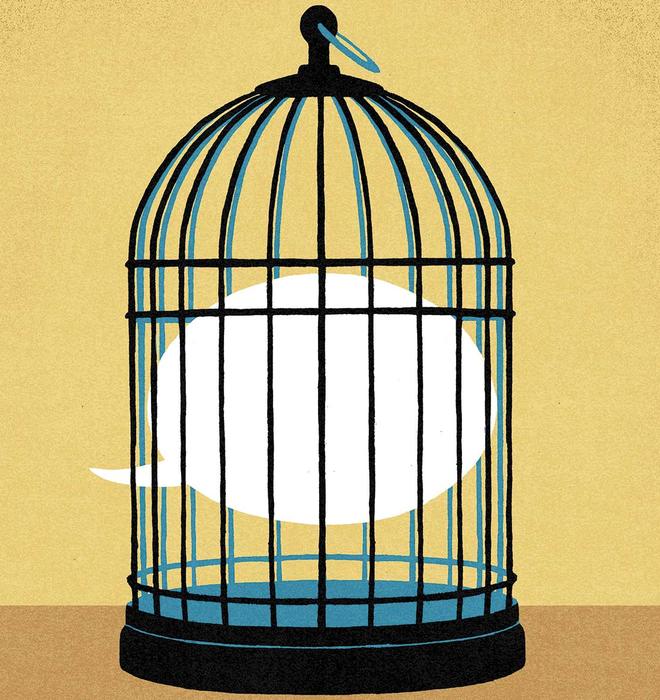
The University, Social Justice, and Free Inquiry
This has been a summer of manifestos. Amid protests and demonstrations across the country, numerous public statements have been issued, both within the Princeton community and outside of it. Many have called for structural changes to fight racism. Others have raised concerns about perceived efforts to silence or “cancel” those who depart from orthodoxy on controversial questions. Collectively, these letters and statements raise fundamental questions concerning social justice and free inquiry that get at the heart of any university’s mission.
PAW invited three members of the Princeton community, each with a different background, discipline, and perspective, to discuss these questions on July 24. Their conversation, which was conducted on Zoom, was moderated by PAW’s senior writer, Mark F. Bernstein ’83.
Mark F. Bernstein ’83: In a column for The Daily Princetonian on July 20, President Eisgruber ’83 wrote, “We are in an era when many people mistakenly treat free speech and inclusivity as competing values.” Are they competing values?
Paul Starr: There are points where those values come into conflict. As a society, we have a “thick-skin” legal culture that requires us to brush off offensive things that other people say, with a few specific exceptions, like “fighting words.” In the public arena, we have to live with what other people say, even if they say insulting things. But the University is a bit different. There we have requirements for civility and mutual respect, and those do put limits on offensive speech. Especially in the classroom, we as teachers have an obligation to create an atmosphere that is inviting to all the students.
Carolyn M. Rouse: There are limits in the classroom. We could relitigate whether the Earth is round or whether Blacks are a different species than whites, but that is a huge waste of time, from my perspective. I hope, by the way, that during the Trump era people understand what it feels like to have your time wasted by having to disprove things that have already been disproven.
When I first came to Princeton 20 years ago, there were very openly racist students who would say publicly, for example, that we know all Black people are drug users. Of course, that is a false statement. But do I allow a student to bring an opinion like that into a classroom conversation? Do I, again, have to keep relitigating things that we already know?
When people say, “Is there some sort of conflict between free speech and inclusivity?” oftentimes what they’re really saying is, “We want to relitigate old racist, sexist, classist arguments,” and I just think that that is not my job to debunk those arguments over and over again. I think that they should come to the class being aware that there is a whole history of literature that has been written about these questions. If they want to present a counterargument, do the reading first.
That said, in the classroom, I sometimes assign students to take a particular side in an argument on a controversial subject. Some students have been very mad at me for doing that, but they can learn a lot by having to debate on a side they disagree with. I intentionally create these classroom debates because students often censor each other. As faculty members, we’re desperate for somebody to say something interesting and challenging to get the conversation going.
I’m not trying to shut down debate, but oftentimes when people demand free speech and inclusivity, it’s code for, “Can we let vile opinions be subjects for discussion in a classroom?” From my perspective, the answer to that is no.
Randall L. Kennedy ’77: On the other hand, I’ve seen episodes in which people have wanted to advance a hypothesis and other people have said that the hypothesis is racist and should not even be discussed. Suppose a student said, “There is more violent criminality in most Black neighborhoods than in most white neighborhoods of comparable socioeconomic indices.” Now, is that something to talk about or is that something where you should say, “We’re not going to discuss that because the question has been decided”?
Rouse: We absolutely should be allowed to talk about that, but let’s look at your hypothetical. If a student made a statement like that in one of my classes, I would respond with a series of questions: Who do you do define as Black? What do you define as a neighborhood and a community? And how do you define violence? Those things are all open for discussion. There is a fairly short list of arguments that I think we are past debating. Maybe the Earth really is flat, and we might take that question up again, but there’s a lot of data out there showing that the Earth is round. So, if you want me to let you reargue that, it’s going to take a while to convince me.
Kennedy: In my experience as a law professor, I have not had a topic come up in which I felt that the proposition was so clear, and the student’s opinion so far out of bounds, that I didn’t want to waste time dealing with it. What happens more often, to the extent that it happens at all, is that you’re talking in class, you don’t want to take up too much time, so you condense your point, you argue in shorthand, and maybe your point comes out in an odd way. People start to roll their eyes; they’ll want to shut it down. And then I have to say, “Wait, let’s discuss this.”
I’m not going to debate whether two plus two equals 10, but if something is pertinent to the subject, let’s talk about it. I find lately that there is a lot of fear in the air, and that is what prompts this desire to shut things down, to avoid grappling with delicate subjects. Let’s not be afraid.
Starr: It seems to me that one of our jobs as teachers is to decide which old questions are worth relitigating for their educational value. We are still arguing about the role slavery played in framing our Constitution. That has significance for our whole constitutional tradition, and it’s still an argument worth having. We’re still having it. Just look at the open letter on racism [read it here] that was circulated recently within the University community. The opening line asserts, “Anti-Blackness is foundational to America.” So let’s have some of these basic arguments. Wrestling with these sorts of foundational questions is part of what I would hope students get from a college education.
Rouse: I am notorious among some students because I tried to explain why my colleague once used the n-word in class. [In February 2018, Professor Lawrence Rosen, now emeritus, was criticized for using the racial epithet in a class on hate speech. He subsequently canceled the course.] I know Larry very well. He hired me. And I accept completely that he used that word solely for pedagogical purposes and not to insult anyone. But I yelled at him for 45 minutes after that lecture, because I was frustrated that he couldn’t hear the students who were telling him, “This word hurts so much. Can’t you just say ‘the n-word’ as opposed to the actual word?” Students have to be open to being challenged in the classroom, but I do think we have to be sensitive to the fact that all four of us are privileged. Some ideas that might seem abstract to us might be very real to our students.
For example, in 2002 Peter Singer [Ira W. Decamp Professor of Bioethics in the University Center for Human Values] invited disabilities-rights lawyer Harriet McBryde Johnson to debate whether parents who have infants with severe disabilities should be allowed to euthanize them. [In his book Practical Ethics, Singer argued that parents, in consultation with doctors, should have the right to euthanize severely disabled infants.] Johnson, who herself was severely disabled, had to sit and listen to Singer debate with students whether society should value her life equal to infants born without disabilities. We have to be able to have open discussions but not also lose sight of the fact that our abstract, intellectual arguments may have real-life consequences for people.
Kennedy: People should be courteous. People should be sensitive. At the end of the day, though, what should Peter Singer have done — not say what he said? Was he supposed to avoid propounding his position and propounding it with force? I mean, presumably if he believed it, he probably wanted to persuade people that he was correct.
Rouse: I know what I would do. As anthropologists, we turn around and recognize, “Oh, my God, there’s a real person here, and this person has real feelings and beliefs, and she’s really smart. Let me ask her what she thinks about this.” I hope I would have the humility to recognize that my argument might be wrong. As an anthropologist, I would never ignore the person in the room in order to promote some kind of abstract theory.
In Larry Rosen’s case, I understand why he said what he said. As a pedagogical tool, using the n-word in class was brilliant. I mean, it really works at a very visceral level. It teaches people that language can be as powerful as a physical punch, and that’s an important lesson. When I said, “Be sensitive,” I meant that when you talk about these things, you don’t always treat them with pure abstraction. You acknowledge that this is something that can affect people, and you don’t just ignore the person with a disability in the room. I feel very comfortable separating my emotions from my theory. That is a skill we have all cultivated over time in our academic training. But for young students who may be new to the academy, I think we just have to be aware that it may come across as very alienating.
Bernstein: Professor Starr and Professor Kennedy, you both signed the so-called Harper’s letter, titled, “A Letter on Justice and Open Debate,” which was released July 7. Can you explain why you both signed it? Professor Rouse, were you asked to sign it?
Rouse: Can you first summarize the Harper’s letter? There have been so many things going around, I’ve lost track of all the letters.
Kennedy: The Harper’s letter basically said that Trumpism and authoritarianism on the right is, of course, terrible, and we should be vigilant against restrictions on thought and speech when they come from that end of the political scale. At the same time, though, there are forces within the Progressive camp that, because of defensiveness, because of wanting to be real woke, have also tried to shut down speech and thought. The letter argues that, as writers and intellectuals, we should be on guard against censoriousness by the left as well as by the right. I think that sums it up.
Starr: When I signed the letter, I thought, “These arguments are so anodyne that really — how could anybody get very excited about them?” But I signed it anyway because I think there is a certain censoriousness in public debate, on the left as well as the right side of the political spectrum.
Bernstein: Many people criticized the Harper’s letter or refused to sign it. Former Labor Secretary Robert Reich said he didn’t sign because he didn’t “want to run the risk of suggesting even indirectly that people of color or women were wrongheaded or being overly sensitive.” Does he have a point?
Kennedy: No. There are people of color and women who are wrongheaded and overly sensitive. I know a bunch of them. So, I mean, again, the statements that this letter affirms are just so true. It asserts that people should be able to say what they believe without punishment. Is that controversial?
Rouse: I try not to sign anything. What is signing a letter or petition going to accomplish?
Bernstein: In an open letter dated July 4, more than 350 Princeton faculty members, students, and alumni called on the University to increase diversity in hiring and decision-making and to take specific actions to fight racism. One request was that the University “[c]onstitute a committee composed entirely of faculty that would oversee the investigation and discipline of racist behaviors, incidents, research, and publication on the part of the faculty, following a protocol for grievance and appeal to be spelled out in the Rules and Procedures of the Faculty.” Are there any areas of research or publication that you think the University should declare off-limits?
Rouse: No. This goes back to institutions and institutional culture. In my department, in any department, you say to the faculty, “OK, you know the field, you’ve done the work. You know our history. You know our rules and procedures. You get tenure.” Now you can’t put external political limits on what people can work on or think or write. That’s academic freedom, and there’s a really good reason for academic freedom. The problem with proposals like the one in that letter is that people sometimes think that history is on their side. That’s when they want to shut down the other side, only to find that history is not on their side, after all. And now people who disagree with you are trying to shut you down. It becomes a power struggle. So, no, I could not sign that letter.
Starr: I wasn’t asked to sign the letter, but that is the provision in it that brought me up short. I thought there were many other good things in that letter, but we as a society have flourished because of academic freedom. I don’t see the grounds for constituting a faculty committee to investigate allegedly racist research and publications of other faculty. I wonder what examples the drafters had in mind. Such a committee could certainly have a chilling effect on junior faculty who might be working on something that somebody else would interpret as being racist, though I’m not sure exactly what that might be.
Kennedy: Well, I’m not a member of the great Princeton faculty, so I wasn’t asked to sign the letter. But I have read the letter, and I think there are a variety of things about it that I find just way off base. People say all the time, “We want candid conversation. Let’s really get down to brass tacks and talk.” And then when people get down to brass tacks, the response becomes, “Oh, you can’t say that,” and people are told to hold their tongues or they silence themselves. Until recently, until the last maybe two or three years, I thought that people were going overboard about attacks on free inquiry coming from the left. I thought that people were really making too much out of episodes like this. I don’t any longer. I think that there is a real problem, and I think that that letter, with that paragraph that you just alluded to, is an example of a reason why people should be very concerned about some of the intellectual tendencies that are abroad.
Bernstein: Would it be useful, though, to define terms such as “racism” so that people know what is off-limits?
Starr: No.
Rouse: I wouldn’t do that. I think the students are already controlling each other’s speech, even more so than the faculty. I am a trustee of a camp. It’s very progressive. Very progressive. There was a moment a few years ago when the camp counselors were claiming that all sorts of things should be condemned as “cultural appropriation.” They didn’t really know what the term meant, or anything about cultural diffusion. Instead they were claiming a kind of cultural purity. It became toxic.
In my own department, we’re not running around screaming about our diversity, but we just happen to be finding really fabulous scholars who just happen to be diverse. Those efforts are always ongoing, though. We should always be examining what we do and how we do it. This is a moment when people should think about, “What’s the curriculum I’m using? What authors am I using? What are my theories based on?” But you should allow individual faculty members to figure that out for themselves.
Kennedy: I want people to be free. I don’t want people to be made to be free.
Bernstein: There have been proposals made at Princeton, and I imagine at Harvard as well, to require that all students, faculty, administration, take a class on anti-racism. Is that a good idea?
Starr: The School of Public and International Affairs just approved a requirement of that kind for students in the MPA program, with a slate of different courses being available to satisfy it. There is ongoing work on a distinct course to cover this, rather than making it more of a distribution requirement. But I think, frankly, these issues about race should be coming up in many different courses, and creating a specialized course may not be the best way to do this.
Kennedy: I would have a lot of questions. First, what is the purpose of the course? If there is a pedagogical purpose — that is to say, if the academic authorities believe that people who attend the institution should know certain things and a course of this sort will expose them to that subject — then maybe such a course is OK. But I am skeptical. I worry that the impetus behind the demand for such a course sounds like training rather than education. I worry that the demand is a manifestation of status politics whereby a particular camp within the university is flexing its muscle by insisting that its tenets be accepted as unquestionable knowledge. For me the question is whether this initiative will encourage open-ended inquiry or mere indoctrination. If the message is, “You’re going to learn this, this, and this, and we’re going to tell you what racism is and if you want to pass the course, you had better regurgitate what I’m saying,” then no, I’m not down with it.
Rouse: The other day, I was asked to participate in an anti-racism training session for third-year residents at Montefiore Hospital in New York. “Anti-racism” was a new terminology for me, and I had to do some research on what it means. I was quite horrified by what I read. Some of the materials I read propound, among other things, that African Americans have a different sense of time than white people, that we respond more to oral presentations than to the written word. I mean — wow. That just reproduces stereotypes. Almost as bad, it identifies all Black people as being the same. Because we all go to the same Black-people meeting every week — right, Randy? On Wednesday nights?
Kennedy: Yes. I think I’ve seen you there. (Group laughter)
Rouse: You hear a lot now about “white fragility.” [Robin DiAngelo’s book White Fragility: Why It’s So Hard for White People to Talk About Racism has been on The New York Times bestseller list since it was published in 2018.] That term is a wonderful provocation, but when I read about her anti-racism workshops, they came across as formulaic. As my colleague Laurence Ralph put it, anthropologists don’t essentialize the categories of race, which is why we are interested in anti-racialization, or how the categories are created in the first place, rather than anti-racism. So I told these medical residents, “I want to be clear that I’m not an ‘anti-racism’ advocate, but my discipline is deeply anti-racist, because we believe in this thing called cultural relativism, meaning we don’t judge other people’s values against our own.”
Many of these anti-racist interventions do nothing to eliminate or reduce racial health disparities because the way we talk about race in the world of casual conversation is not the same way race is experienced by actual people. In casual conversation we say, “Black culture,” but a Black person from Flint, Michigan, is going to have very different health outcomes due to different environmental exposures and cultural practices than somebody like me, who grew up in San Diego, California. This is why you have to be careful with anti-racism training, because it can simply make people feel good that they’re using language in the right way. But that language does not map onto experience, which makes it unscientific and therefore unhelpful for health policy.
Bernstein: There was a story in The New York Times several weeks ago reporting that high school students around the county are combing through their classmates’ or teachers’ social-media accounts and calling out things that might be considered offensive. How should Princeton handle such a thing if it were to arise here?
Rouse: I think we need to teach forgiveness. I was shut down in a conversation recently because I used the word “forgiveness.” Other faculty jumped on me because of it. Still, the practice of forgiveness is really important, and so is the practice of listening. My daughter is 15, so she’s already hooked into all these people who are being outed and shamed and canceled. Social media is part of this, and it’s a sad moment, but I think it’s beyond Princeton.
Starr: Some of these events have been instructive for people, though. A good example is the recent incident in Central Park that involved an African American birdwatcher being accused of being a criminal by a white woman simply because he asked her to keep her dog on a leash. She was widely criticized when video of the encounter was posted on social media, and rightly so, but the man himself was very forgiving of her afterward. So there is sometimes real value in these episodes in changing the culture. On the other hand, you can have people prying into other people’s tweets or photos from five or 10 years ago, when they were teenagers and so forth, and they could well have learned something over the years. Punishing them for that now just seems so excessive and inappropriate.
Bernstein: As a final question: Does a university have an obligation on particular social, moral, or political questions to instruct students what to think as well as how to think?
Starr: I think the university has an obligation to create a free environment, where the decisions about the curriculum belong to the faculty collectively, and through the departments. That collegial process, along with academic freedom for individual members of faculty, will produce a result that, in a very broad sense, fits those objectives. But I don’t believe it’s the job of the university to decide specifically what students are to think.
Kennedy: The university does take positions on certain issues, though. It believes in truth. It condemns plagiarism and cheating. It believes that people should be educated regardless of gender or race. Those are still controversial ideas in some places, but I’m OK with minimalist positions of that sort. After that, I would say to the university, be quiet and then, as Paul says, just make sure there are nice laboratories, a good library, up-to-date classrooms, a well-paid faculty and staff, and then let education proceed. No, I don’t think the university should be drawing up a list of 10 items everyone has to believe, because the Princeton community is large and diverse, and people have different opinions.
Rouse: What about DACA or immigration? What about that?
Kennedy: I think that’s OK. University officials should address forthrightly policies that directly affect the university’s educational mission. I’ve been very happy with the positions taken by the leader of my university, as well as the leader of Princeton, on DACA.
Rouse: What about birth control for women in the health clinic? What about LGBTQ services?
Kennedy: I hope that the university attends to the full array of needs that people have in terms of managing health, sex, and identity. The university unavoidably takes a position on these matters by what it permits or prohibits on its premises. My sense is that the university adopts a properly latitudinarian stance, recognizing that views will differ, sometimes radically so.
Rouse: My only point is that Princeton has a culture, and it’s OK for institutions to own their culture. Liberty University has its own culture. I think that Princeton shouldn’t shy away from what it wants to be — the values it articulates in its mission statement. And that mission statement changes all the time. I think that, if we take away anything that’s powerful and important about this moment, it’s that we should always be clear that Princeton’s current educational mission and deployment of resources didn’t just happen. There is choice and power behind everything, from not scheduling classes at 4:30 p.m. to affinity-club spaces to how disciplines and departments are organized. So we should be open to hearing people challenge those choices and that power, without attacking each other.
Starr: There are cases where the University has a guardianship responsibility, speaking out on behalf of its students, and those fall in a somewhat different area from other public policy issues.
Kennedy: Let’s take this back to some of the other letters that have come out this summer. One of your colleagues published a letter in which he used very incendiary language [see page 17; classics professor Joshua Katz referred to a former student group, the Black Justice League, as a “terrorist organization”], and your president condemned that language publicly. On the one hand, you say that there’s a difference between disciplining someone for what they say or write and simply calling someone out. Well, sometimes that line gets very fuzzy. Just suppose I call somebody out, and I say, “I abhor what you said, and by the way, I abhor it so much that I urge people to ostracize you.” Is that simply me expressing my views, or have I now edged into an inappropriate censoriousness? Often it’s pretty clear what censorship is, but sometimes, it isn’t.
Starr: If Professor Katz had not made that very specific statement about the student group, then I don’t think the president should have gotten involved. I think this was an issue of endangerment. To say that these students have participated in a terrorist organization would possibly have put them at risk. And really, it needed to be answered. So, I think this is a very special case.
Bernstein: Thank you. This has been a very provocative and informative discussion.
Kennedy: It’s been nice seeing everyone. Stay safe.
Rouse: We’ll wait for the hate mail after it’s published. (Group laughter)


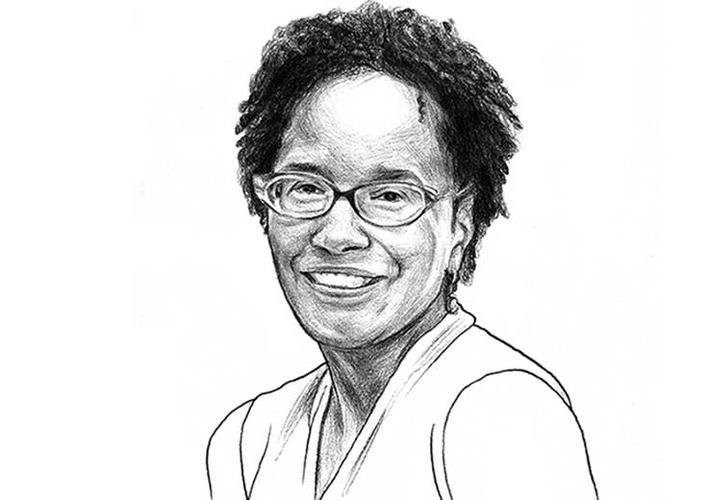
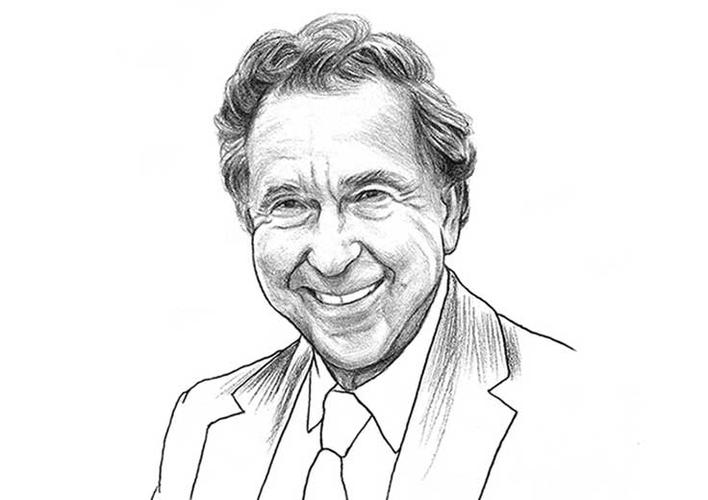
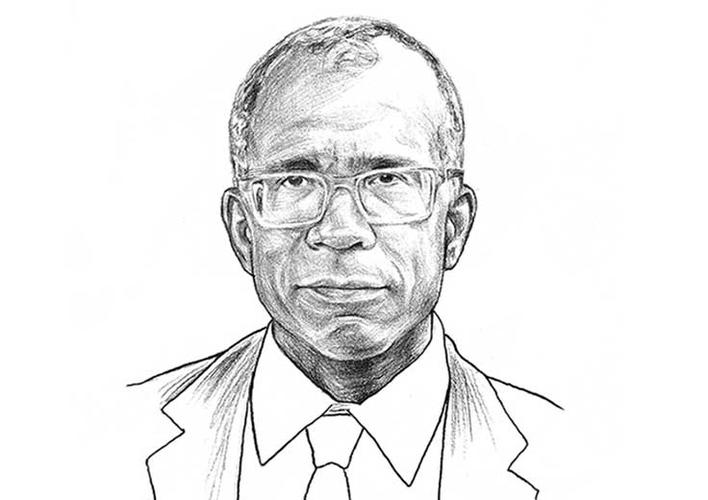
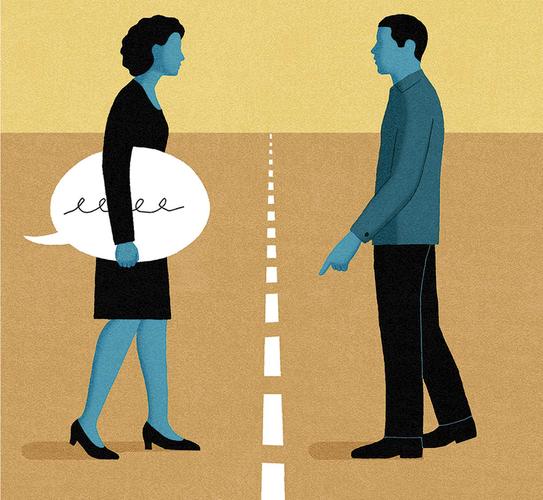
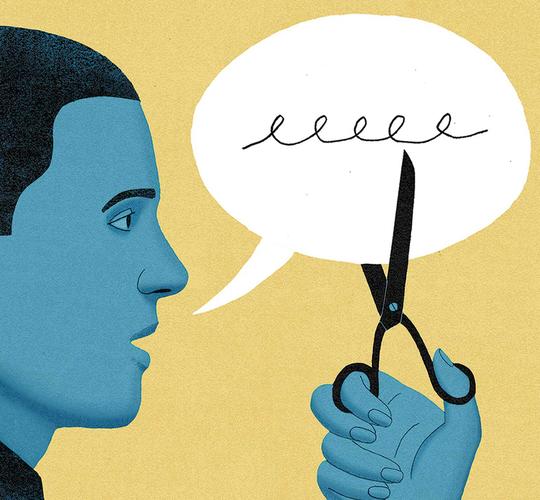




2 Responses
Idris Magette ’96 and Yina Moore ’79
5 Years AgoPrinceton as an Anti-Racist Institution
Regarding the conversation moderated by Mark Bernstein ’83 in the September issue (“The University, Social Justice, and Free Inquiry”), we write to represent the viewpoint of Concerned Black Alumni of Princeton, a collective of more than 400 alumni who support Princeton’s continuing evolution into an anti-racist institution while remaining a bastion of free speech.
Since the University community’s life cannot fully flourish when issues of personhood, human rights, and dignity remain unsettled, we applaud PAW for bringing together professors Carolyn Rouse, Paul Starr, and Harvard’s Randall Kennedy ’77 to discuss free-speech considerations. In particular, we agree with Professor Rouse who, by citing the Peter Singer debate, shows how improperly facilitated inclusivity weakens, even stymies, free academic inquiry. In that instance, disability-rights lawyer Harriet McBryde Johnson — herself severely disabled — could merely observe the debate about whether society should value lives such as hers. A more enriching, humane approach would include such a person in the debate, since questioning someone’s very existence challenges that person’s rights and dignity.
Likewise, as Black alumni, we accept President Eisgruber ’83’s invitation to join him in implementing anti-racist initiatives. To that end, we encourage additional signatures to our petition (https://cutt.ly/CBAP) reinforcing the faculty’s call for Princeton to establish a center dedicated to eradicating systemic racism and to convene a symposium on Princeton’s continuing work to combat racism. We appreciate President Eisgruber’s inclusive leadership and join him in commitment to promoting excellence through respect for the scholarship and individuals of our diverse academic community, as we learn from one another in service to our nation and to humanity.
Neil Shore ’59
5 Years AgoGoal of Awareness and Sensitivity to Differences
Thank you for this provocative discussion.
One thing I thought would be helpful to have discussed is what is the goal of increased awareness and sensitivity to our differences. Is it a society in which everyone is accepted and respected for what they are and not what their color, religion, biologic gender, sexual choices, etc. are? When there is agreement on the goal, one can evaluate activities and discussions as to how they impact this goal.